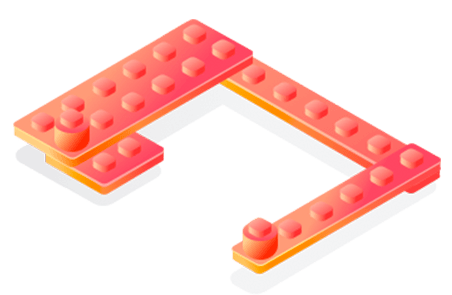Software and Information System Testing
Once a QA team has completed integration testing and has verified that all modules and
components behave as expected when integrated together, the next phase of quality assurance
begins . . . system testing. The final preparation for the release of a web application,
mobile app, and so on relies on software system testing which looks at a software product as
a whole and evaluates whether it successfully meets the pre-defined functionality, end-user,
and business criteria.
Keeping with the analogy of the hot air balloon we discussed earlier, after validating
through integration testing
that all the parts of the hot air balloon work together correctly, system testing would then
look at the hot air balloon as one mechanism and evaluate how
well it works as a whole.
Quality assurance testers in this phase will want to measure not only how easily the hot
air balloon lifts, flies, and lands, but how user-friendly, secure, and stable it is
under
normal and peak conditions.
As the first test of a software product that has become fully integrated, QA system
testing
assesses behavior and helps monitor for:

PERFORMANCE
USABILITY
EASY OF INSTALLATION
LOAD/STRESS
DOCUMENTATION
INTERFACE
SECURITY
RECOVERY

SCALABILITY
Advantages of System Testing
One of the most significant phases in the software QA life cycle, system testing is at the heart of authenticating whether a product is ready to be shared with users. Benefits include:
-
Ensures end-to-end evaluation of an entire product prior to release and lowers risk for application failures once the product is live
-
Encourages strong, clear documentation including that of application architecture
-
Confirms compliance with all requirements specifications (technical, functional, business, etc.)
-
Improves the quality of the end product that is delivered to users
-
Reduces chances of timely and costly bug fixes that may pop up after a product is released and drain customer support resources
-
Gives developers confidence that they are delivering a high-quality user experience

Types of System Testing
To reveal the most actionable insights, system QA is conducted in a test environment that closely mimics the production environment. A dedicated system test engineer may administer an array of tests that measure and verify the following:
-
1
FUNCTIONALITY
Does the system function as the requirements criteria detail it should?
-
2
PERFORMANCE
Is the software reliable, responsive, stable, and performant under various conditions?
-
3
REGRESSIONS
Has the software retained its original functionality since its modifications?
-
4
USABILITY
Is the software user-friendly, and intuitive? Does it offer an optimal experience for the end-user?
-
5
STRESS
Can the software hold up as the load and stress on the system increase?
-
6
LOAD
How quickly does the system respond under normal and peak conditions?
-
7
SECURITY
Do the security features ensure the integrity of the software product as far as protecting sensitive data and information are concerned?
-
8
RECOVERY
Can the software recover successfully and quickly following a crash or failure?
-
9
INTEROPERABILITY
Can the software successfully interact with other software systems or components?
-
10
DOCUMENTATION
Are all test scenarios and requirements agreed upon prior to and during this QA phase well-documented?
If bugs, breaks, or defects are identified during this stage of evaluation, they are fixed and then re-tested, forming a repeated quality assurance cycle until the software QA team signs off for deployment.

Outsourcing System Testing
System testing in software engineering can be inadvertently biased by a developer’s personal
affinity for their own code. That is why it is highly recommended to engage independent quality
assurance professionals who can bring their software system testing expertise, experience, and
objectivity to the table.
Be it mobile application or web application QA testing, or some other category of software and
information systems quality assurance, the first-class team of specialists at Spiral QA have you
covered. Their deep knowledge of and experience with system testing combined with their passion
for user-focused development make them a critical asset during the software development
cycle.
Want to learn more about how our QA specialists can help you?
Contact us to discuss your project.

